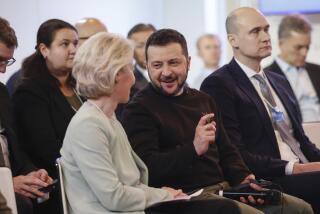‘Freedom requires strict order’: China preps for second World Internet Conference
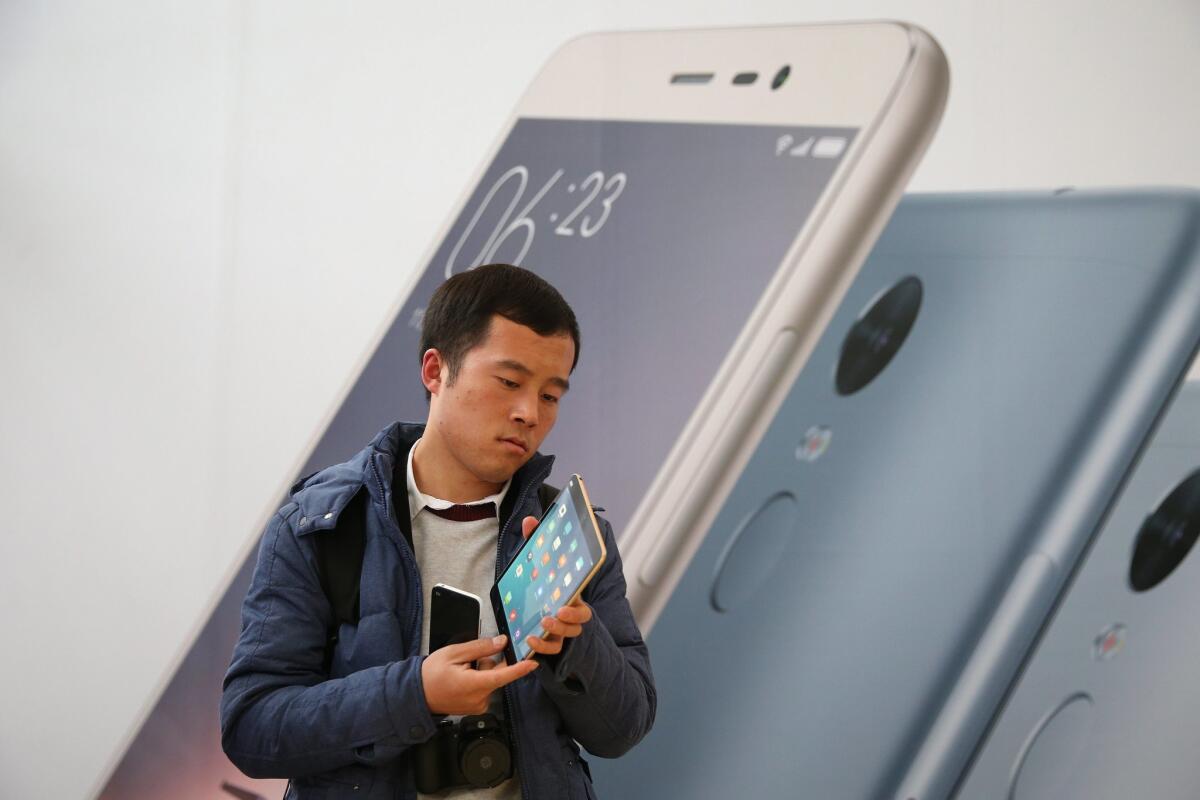
A man examines the new Xiaomi “Mi pad 2” after a Xiaomi new products releasing ceremony in Beijing in November.
- Share via
Reporting from Beijing — China on Wednesday will kick off its World Internet Conference, a three-day gathering in the eastern city of Wuzhen. With Chinese leaders stressing all things Internet as a major economic development strategy, and with foreign tech firms salivating over the massive but tightly managed market, many are looking to the conference for signposts to the future.
Here’s a primer:
What is the World Internet Conference?
Organized by the Cyberspace Administration of China and Zhejiang province, the conference was first held last year. Conveners tout WIC as a platform to discuss a full range of issues regarding cyberspace, innovation and society, but the gathering is seen by many as a forum for China to sell its cyber-governance model and ideology to the world.
Join the conversation on Facebook >>
China has more than 640 million Internet users with 530 million mobile web users. Its new “Internet Plus” scheme is a national economic strategy, aiming to promote cloud computing, online banking and mobile Internet to expand e-commerce and upgrade the financial industry. As the country’s economy slows, officials point to Chinese tech firms as one bright spot for job creation.
Even as the Chinese tech sector is booming, though, China continues to be criticized — both at home and abroad — for its tight censorship of online content.
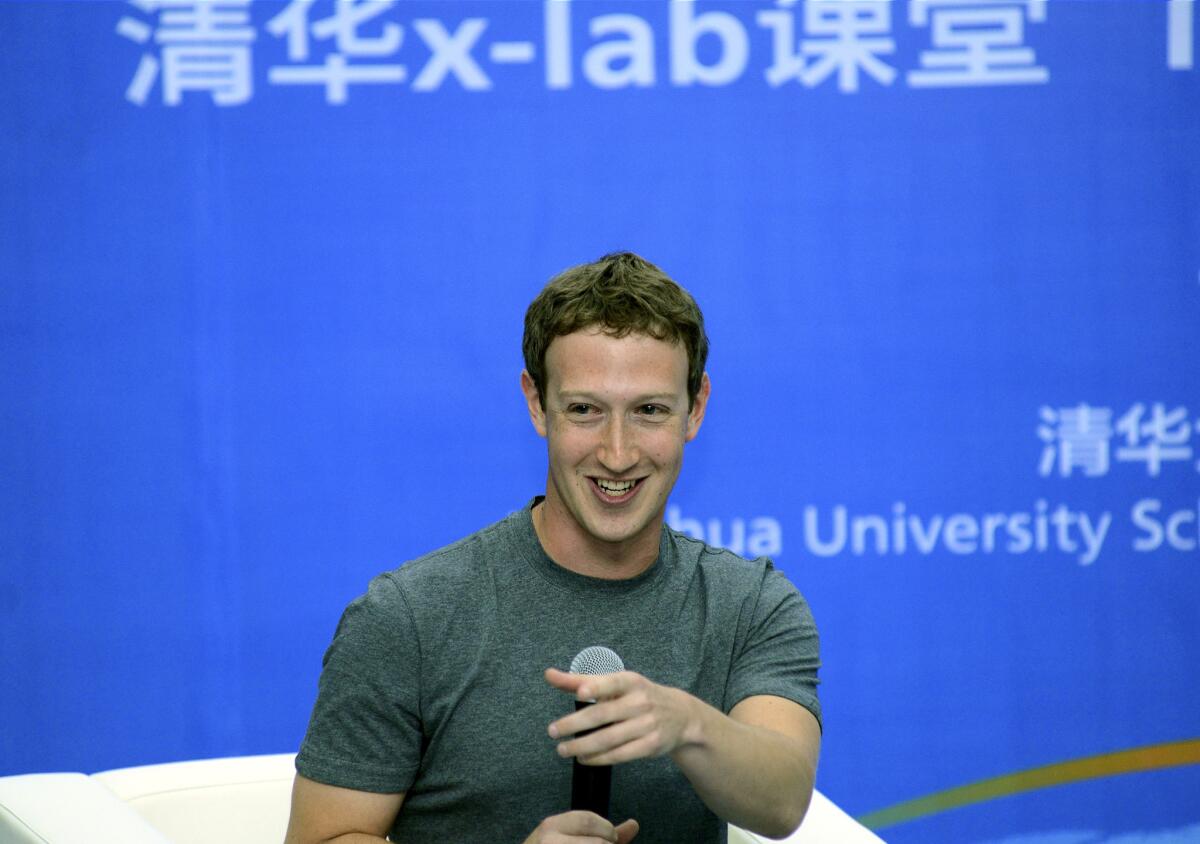
Authorities continue to block thousands of websites and social media networks that they don’t like, including Google, Facebook and Twitter; some see the blockages as both economic protectionism as well as measures for social control.
China’s so-called Internet Clearance Campaign launched early in 2014 only stepped up government control, which officials defend as necessary to keep public order. They show no signs of easing up on that policy.
“Freedom is our goal, and order is the means to achieve that goal,” said China’s Internet czar, Lu Wei, in previewing WIC at a news conference last week.
Lu expressed confidence that China would be able to successfully promote its vision for Internet sovereignty to other countries, with each nation treating its online space like “a physical territory.”
At last year’s conference, China sought to get companies to sign a declaration that called on the international community to “respect the Internet sovereignty of all countries,” but that ended in failure. Amnesty International urged tech firms to resist such pressure again this year.
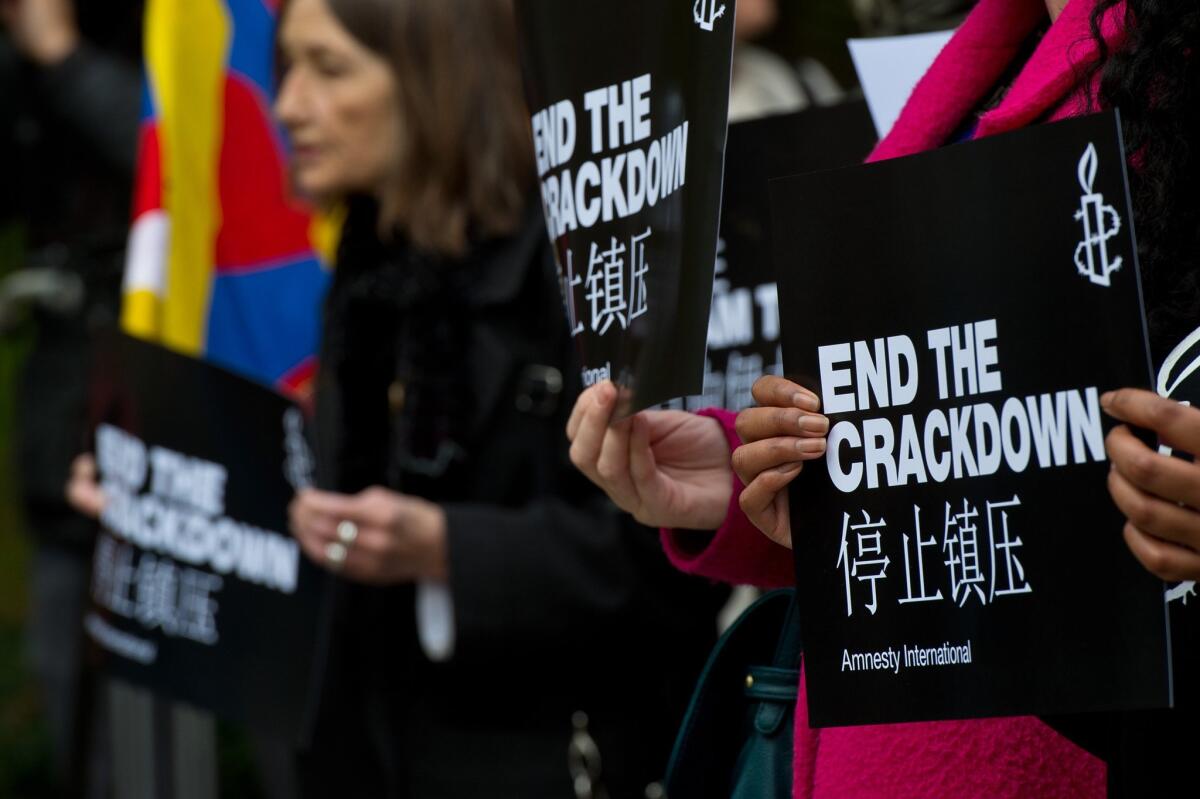
In London, demonstrators hold signs with the slogan “End the crackdown” in protest of human rights violations and censorship of the Internet and media in China. Chinese President Xi Jinping visited England in October.
“Under the guise of sovereignty and security, the Chinese authorities are trying to rewrite the rules of the Internet so censorship and surveillance become the norm everywhere. This is an all-out assault on Internet freedoms,” Roseann Rife, East Asia research director at Amnesty International, said in a statement.
“Tech companies, including Apple, Google, Facebook, LinkedIn and Microsoft, must be prepared to say no to China’s repressive Internet regime and put people and principles before profits,” she said.
Reporters Without Borders has called for an international boycott of the Wuzhen conference, calling China the “enemy of the Internet.” The group denounced the conference as a farce whose real aim is to “ensure that Internet companies wanting to operate in China fall into line.”
China-based reporters for the New York Times and Washington Post, as well as correspondents from Europe, say organizers have denied them accreditation to cover the conference.
What to watch for?
Chinese President Xi Jinping will address the conference, which is expected to attract prime ministers from a number of countries with spotty records on free speech, including Russia, Tajikistan, Kyrgyzstan and Kazakhstan.
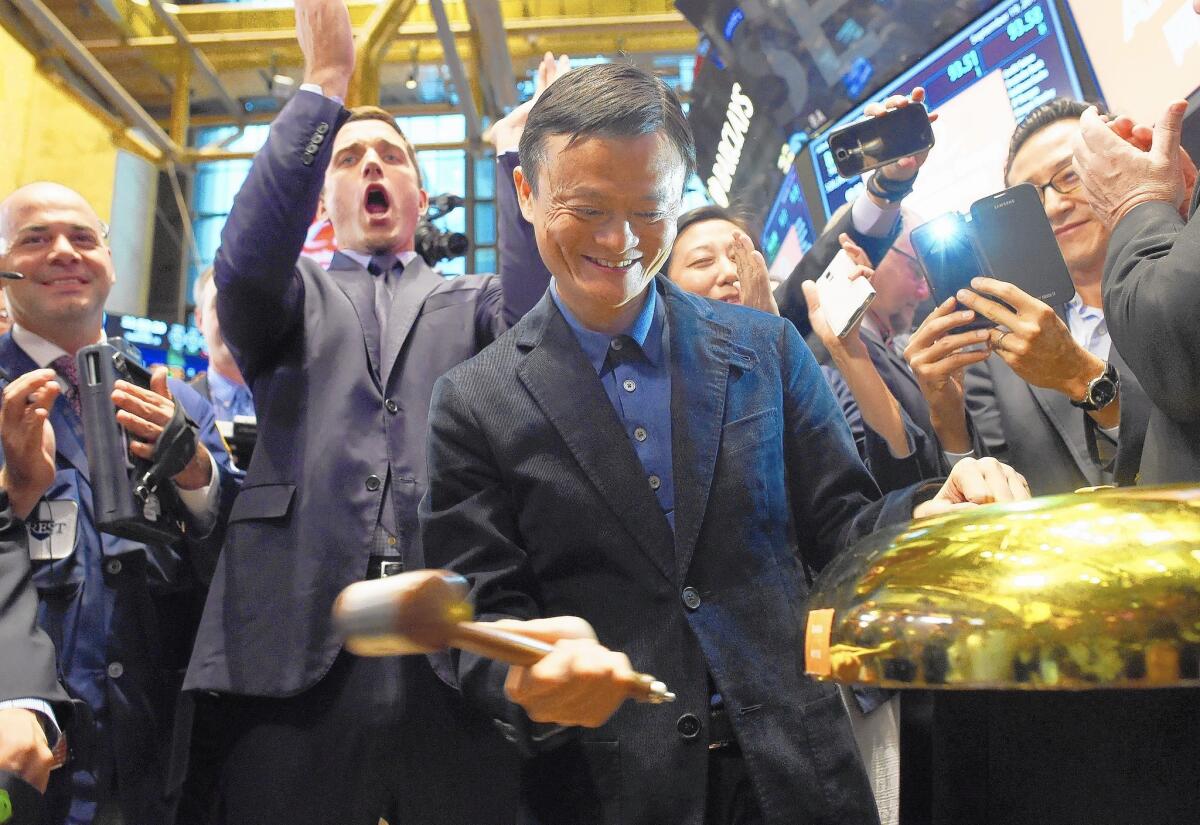
Chinese online retail giant Alibaba founder Jack Ma rings a bell to start the trading of his company’s stock on the floor at the New York Stock Exchange in New York on Sept. 19, 2014.
U.N. Deputy Secretary General Wu Hongbo, as well as Robert Kahn, one of the “fathers of the Internet,” are slated to appear in Wuzhen. Senior executives from top Chinese tech companies including Baidu, Tencent and Alibaba have been invited to participate too. More than 2,000 people are expected to attend, about double 2014’s number.
In his keynote address, Xi is expected to lay out some specifics about China’s 2016 cyber development policy, but attendees also will be watching for any remarks related to the hacking allegations that have strained U.S.-China relations.
Some companies will unveil their latest innovations, including unmanned vehicles and “5G” mobile technology.
What happened at WIC last year?
With “An Interconnected World Shared and Governed by All” as its theme, the first WIC was held in Wuzhen in November 2014. Lu said the goal of the first conference was to “give a panoramic view for the first time of the concept of the development of China’s Internet and its achievements.”
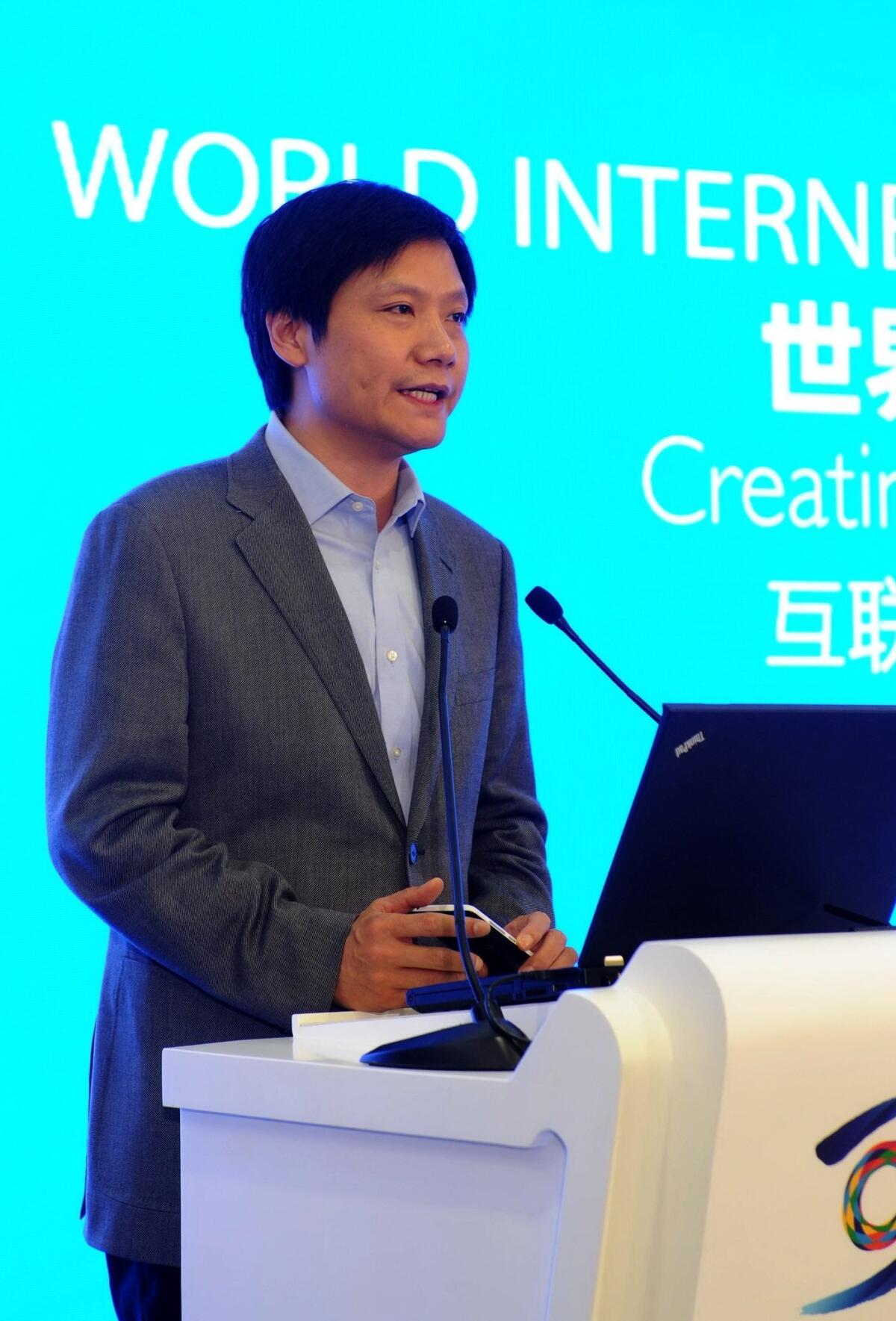
Lei Jun of Xiaomi Corp. attends the first World Internet Conference in Wuzhen in November 2014.
Attendees included Jack Ma, executive chairman of Alibaba; Reid Hoffman, the co-founder of LinkedIn; Masayoshi Son, CEO of Japan’s SoftBank; Pony Ma, chairman of Tencent; and Cao Guowei, CEO of Sina. Senior executives from Apple, Facebook and Intel also attended.
But much of the world seemed absent from the so-called “global conference,” and China’s push on the “sovereignty” declaration fell flat. China nevertheless has continued to push to have a say in shaping global cyberspace norms.
Is China going to lift its Great Firewall for the conference?
“China would like to build a peaceful, secure, open, democratic, multilateral and transparent global Internet system along with all other countries,” Vice Premier Ma Kai said during last year’s opening ceremony. Last year, participants reported that China offered unrestricted access to many normally blocked websites to people attending the conference.
But if anything, China seems to be strengthening its Great Firewall and stepping up its online censorship.
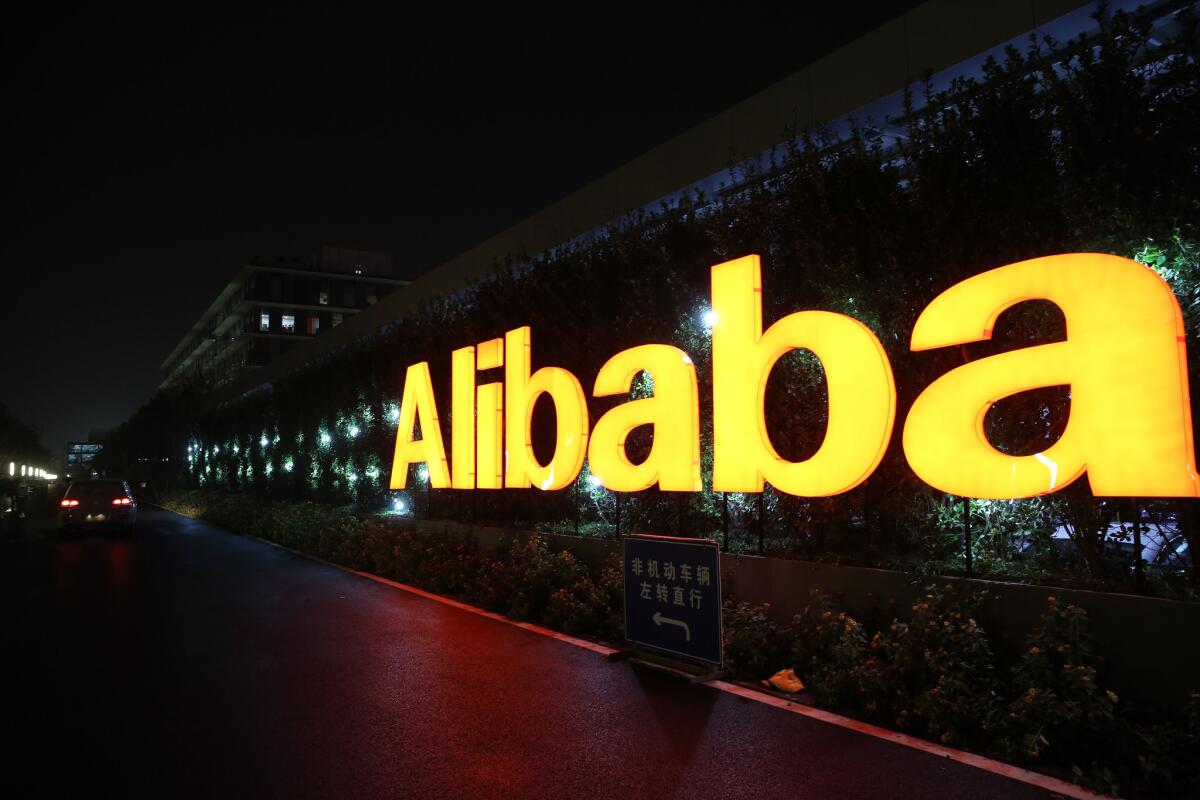
The Alibaba headquarters in shown in Hangzhou, China.
Addressing reporters ahead of this year’s conference, Lu rejected criticism that the country’s Internet was too censored.
“No country in the world has completely controlled the Internet,” he said. “Internet freedom requires strict order.”
Lu also suggested during the news conference that Beijing actually learned Internet management techniques from Western countries.
Why Wuzhen? What kind of city is it?
Lu says Wuzhen was selected as the host city because its “Internet economy” is strong and because it is a window to show Chinese history and culture. Wuzhen also seems to have special connections with Xi; he previously worked in Zhejiang and visited the town five times when he was assigned to the province.
Wuzhen, an ancient and prosperous town in eastern China, has a history of more than 6,000 years. It has a population of about 60,000 and is near Hangzhou, where Alibaba is headquartered. Mogujie (a shopping app) and some divisions of NetEase (a.k.a. 163.com, China’s biggest email service provider) also are based in Hangzhou.
Chinese officials have indicated that they had Davos, Switzerland, in mind when they selected Wuzhen as the host city. The alpine hamlet of Davos has become internationally famous as the host of the World Economic Forum, though it’s likely to take Wuzhen decades to reach such status, if it ever does.
Besides becoming another Davos, Wuzhen also aspires to be China’s answer to Avignon, France. Wuzhen has hosted the Wuzhen Theatre Festival since 2013.
Follow @JulieMakLAT for news from China
MORE NEWS FROM CHINA
China, U.S. relationship key in climate agreement
Nobel laureate, other dissidents remain in Chinese prisons
China puts rights lawyer Pu Zhiqiang on trial as police scuffle with diplomats and protesters
More to Read
Sign up for Essential California
The most important California stories and recommendations in your inbox every morning.
You may occasionally receive promotional content from the Los Angeles Times.

